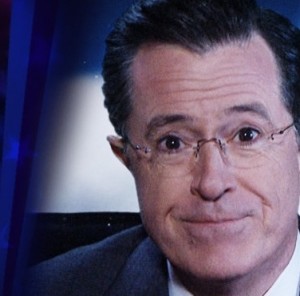 With the demise of “The Colbert Report,” TV has lost its best mocker. There are better interviewers and funnier sketch artists, but nobody mocked better than Stephen Colbert, the character, in full stride. His ability to walk the thin line between parody and cruelty was unmatched, and may never be equaled.
With the demise of “The Colbert Report,” TV has lost its best mocker. There are better interviewers and funnier sketch artists, but nobody mocked better than Stephen Colbert, the character, in full stride. His ability to walk the thin line between parody and cruelty was unmatched, and may never be equaled.
That’s a difficult to line to walk. He was pompous, overtly racist and demeaning of everyone. And yet it was impossible not to laugh and enjoy the mocking, even if it may hit close to home. The only TV character to come close to the same line was maybe Archie Bunker, Carroll O’Connor’s armchair Nixonian, who put a face to a generation of bigots.
In an age when every cable pundit sneers at their opposition, Colbert made it fun to mock again, returning satire and humor to a humorless industry. In the process, Colbert separated the world into people who got the joke and those that were the joke.
Making fun of the famous came with a sophisticated edge for Colbert. He allowed us to laugh at the buffoonery of their day to day antics. Blowhards were always his favorite targets. He skewered the pompous. But managed to switch to a gentle smile when dealing with those that were simply stupid.
In many ways, Colbert was far more subversive than Jon Stewart, who works from the traditional fake news format. Colbert did it from within, by becoming one of them, using the punditocracy’s own words, mannerisms and zealous self-importance to undermine their pedestal. He embraced their talking points and made them his own. We all could recognize the thread of reality in Stephen Colbert, the character.
Colbert will go down in history for injecting that character into the political dialogue, blurring the lines between a fictional asshole TV pundit and the assholes on TV every day. But he went further, taking on the silliness of celebrity and the personal shallowness that invades the rich and powerful. Much like Lisa Kudrow’s self-absorbed character in “Comeback,” his personal idiosyncrasy’s and view of daily life were a clear window into the shallowness of celebrity and fame obsession, a vivid profile of people convinced of their entitlement.
More than any other comedian, Colbert provided a daily caricature of the corrupting influence of fame. Stephen Colbert, the character, was convinced of the righteousness of his own place in the world, even though he did not have a single definable skill. It didn’t matter. He was famous. And fame was a lifetime gold stamp to get in front of the line. That’s just the way it is, get over it, Stephen Colbert explained night after night.
Political satire will go on, and new voices will emerge, but nobody will hit the same note as Colbert, that pitch-perfect mock.
Kevin Brass writes for the New York Times, Wall Street Journal and many other publications. He is the author of “The Cult of Truland,” a satirical novel set in the world of celebrity journalism.
